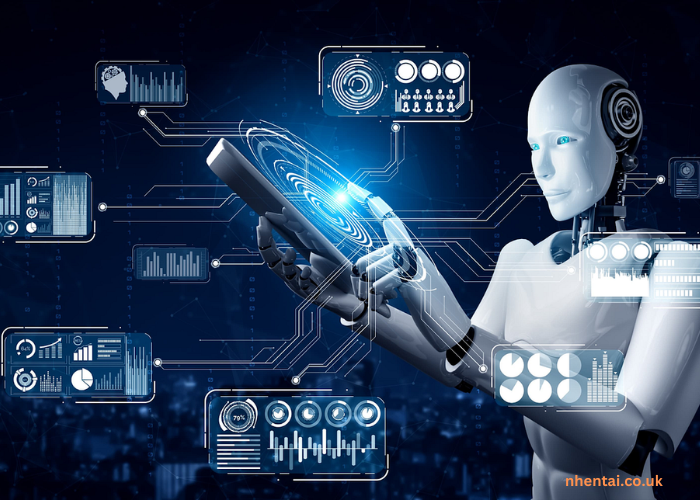Harnessing Artificial Intelligence: Revolutionizing Businesses and Society
Artificial Intelligence (AI) is a field of science devoted to the study and development of computer systems that can learn and think in a way that resembles human intelligence. AI has been around for decades, but it is only recently that it has gained significant traction due to advances in computing power, big data, and machine learning. AI has the potential to revolutionize the way businesses operate, the way societies function, and the way individuals interact with the world around them. In this blog, we will discuss the various benefits, impacts, challenges, and strategies for implementing AI.
Benefits of Artificial Intelligence
The primary benefit of AI is that it can be used to automate mundane and repetitive tasks, freeing up employees to focus on more important tasks and enabling businesses to increase their efficiency. Additionally, AI can be used to automate decision-making processes, enabling businesses to make faster and more informed decisions. By analyzing large datasets, AI can also be used to detect patterns and trends, helping businesses to better understand customer behavior and preferences, as well as identify potential opportunities and areas of improvement.
AI can also be used to improve customer service and interaction. Chatbots and virtual assistants can be used to answer customer queries, freeing up customer service reps to focus on complex issues, and AI-powered voice assistants and natural language processing can be used to provide customers with a more personalized and engaging experience.
Impact of Artificial Intelligence on Businesses
The impact of AI on businesses is significant. Businesses can use AI to automate mundane tasks, increase efficiency, and make faster, more informed decisions. Additionally, AI can be used to better understand customer behavior and preferences, as well as to identify potential opportunities and areas of improvement.
Businesses can also use AI to improve customer service and interaction. AI-powered chatbots and virtual assistants can be used to answer customer queries, freeing up customer service reps to focus on complex issues, and AI-powered voice assistants and natural language processing can be used to provide customers with a more personalized and engaging experience.
Impact of Artificial Intelligence on Society
The impact of AI on society is far-reaching. AI can be used to improve public safety, by monitoring public spaces and automatically alerting authorities of suspicious activity. AI can also be used to improve healthcare, by analyzing medical images to detect diseases and anomalies, and by tracking patient health data to identify potential issues and adverse effects.
AI can also be used to improve education, by automatically grading student essays and providing individualized feedback, and by providing students with personalized learning experiences based on their interests and abilities. AI can also be used to improve transportation, by optimizing traffic patterns and providing real-time updates on the best routes.
Challenges of Artificial Intelligence
While AI has the potential to revolutionize the way businesses operate and the way societies function, there are also a number of challenges associated with its implementation. One of the biggest challenges is that of privacy and security. AI-powered systems have access to large amounts of data, and there is a risk that this data could be misused or stolen. Additionally, AI systems are vulnerable to hacking, and there is a risk that malicious actors could use AI to perpetrate fraud or other malicious activities.
Another challenge is the potential for AI to be used to replace human jobs. While AI can be used to automate mundane tasks, there is a risk that it could be used to replace more complex tasks, leading to job losses.
Finally, there is the challenge of bias. AI systems can be biased if they are not properly trained, resulting in inaccurate results or decisions. As such, it is important to ensure that AI systems are properly trained and monitored to ensure they are providing accurate results.
Strategies for Implementing Artificial Intelligence
When implementing AI, it is important to consider the various benefits, impacts, and challenges associated with its use. The first step is to identify the areas where AI can be used to improve efficiency, accuracy, and customer service. Once these areas have been identified, it is important to ensure that the necessary data is available and that it is of sufficient quality and quantity.
Once the data is available, it is important to develop the necessary algorithms and AI systems. It is also important to ensure that the AI systems are properly trained and monitored to ensure accuracy and to avoid bias.
Finally, it is important to ensure that the necessary security measures are in place to protect the data and to ensure that items are not used to replace human jobs, but rather to free up employees to focus on more important tasks.
Conclusion
Artificial Intelligence (AI) has the potential to revolutionize the way businesses operate, the way societies function, and the way individuals interact with the world around them. AI can be used to automate mundane tasks, increase efficiency, and make faster, more informed decisions. Additionally, AI can be used to improve customer service and interaction, as well as to detect patterns and trends














Post Comment